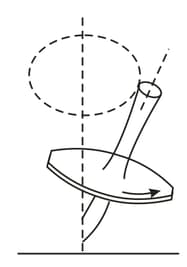A device often used to illustrate the laws of uniformly accelerated motion is the Atwood machine. The machine consists of two loads of mass and attached to the ends of a limp but inextensible string. The string runs over a pulley. The acceleration with which the loads move is , whereas the angular acceleration of the pulley is ignored. Is the last assumption true for exact calculations?
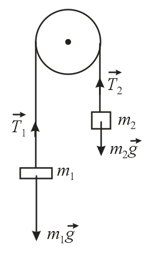


Important Questions on Fundamentals of Mechanics
Strings are wound around a shaft and a sheave of equal mass, and a load is attached to the end of each string (the loads have equal mass). Which of the two loads will descend with a greater acceleration and which of the rotating objects, the shaft or the sheave, has a greater angular acceleration?
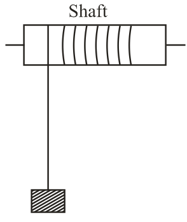
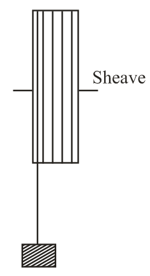
A number of types of helicopters, among which are the Soviet-made "Mi" helicopters and the Westland Whirlwinds designed for use by Queen Elizabeth , utilize one main rotor and a small vertical tail rotor. What is the function of this second rotor?
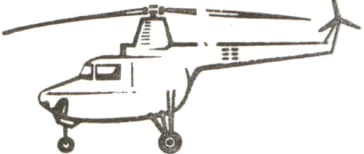
A rod whose lower end is sliding along the horizontal plane starts to topple from the vertical position. What will be the velocity of the upper end when this end hits the ground?
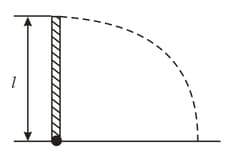
A thin rod of length and mass is standing (vertically) on a perfectly smooth floor. The state of equilibrium in which the rod is at rest is unstable, and the rod falls. Find the trajectories that the various points of the rod describe and the velocity with which the upper end of the rod hits the floor.
A homogeneous rod is lying on a perfectly smooth floor. A bullet hits the rod and gets stuck in it. The direction of the bullet's initial velocity is perpendicular to the rod, and the point where the bullet hits the rod lies at a distance from the middle of the rod. The mass of the bullet is and the mass of the rod is . Will a velocity directed in opposition to be imparted to end at the first moment after the collision?
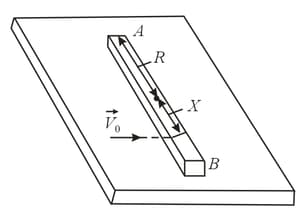
The axis of a gyroscope is mounted in a frame that can rotate about the axis . This frame is mounted, via vertical supports and , on a horizontal platform which, in turn, can rotate about the axis . At first the platform is at rest and the gyroscope is rotating in the direction designated by arrow . Then the platform begins to rotate in the direction designated by arrow . How will the gyroscope's axis change its position in space?
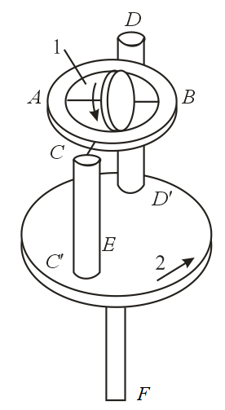
A top is spinning in the direction designated by the arrow in the figure. In what direction does the precession of the top occur?
